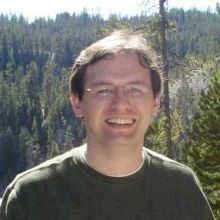Chemical and Biological Engineering Spring 2023 Seminar
The Department of Chemical and Biological Engineering will host Christopher S. Henry, computational biologist at Argonne National Laboratory, for a seminar titled “Building Mechanistic Understanding of Environmental Microbiomes” on Wednesday, February 1, 2023, in Room 131 of Perlstein Hall from 3:15–4:30 p.m.
Abstract
Increasingly multi-omics data is becoming more accessible for the study of a wide range of complex biological systems. Today, large-scale metagenomes can be readily obtained from soil microbiome systems, while the instruments and protocols surrounding the collection of metabolomic and proteomic data are constantly improving. Yet analysis methods still struggle to annotate and integrate these individual datasets, let alone combine them to discover new biological principles. Many of the species observed within microbiome systems have never been cultured and it is a challenge to assemble their genomes from metagenomic data; many of the genes observed within microbiomes are not annotated or misannotated; and many of the metabolites observed cannot be identified or associated with known biochemical pathways. Here we will discuss approaches we are applying with KBase and ModelSEED to address all three of these problems.
Biography
Christopher Henry’s primary research is in the field of computational biology, with a focus on the prediction of phenotype from genome through the use of comparative genomics, metabolic modeling, and dynamic cellular community models. His team at Argonne National Laboratory and the University of Chicago is currently involved in three primary projects: development of methods, data, and software for automated reconstruction of genome-scale metabolic models in collaboration with researchers at Hope College, UChicago, Argonne, and Fellowship for Interpretation of Genomes; design and implementation of a minimal strain of B. subtilis in collaboration with researchers at UChicago, Argonne, and INRA in Paris; and the design and implementation of a large-scale simulation engine for cellular communities in collaboration with researchers at Yale University, University of Pittsburgh, UChicago, and Argonne. Henry received his Ph.D. in chemical engineering from Northwestern University in 2007. He was a postdoctoral scholar at Argonne from 2007 to 2009 and was promoted to assistant computer scientist in 2009. He is also an adjunct professor in the Department of Chemical and Biological Engineering at Northwestern. He received the Jay Bailey Young Investigator Best paper in Metabolic Engineering Award in 2012.


